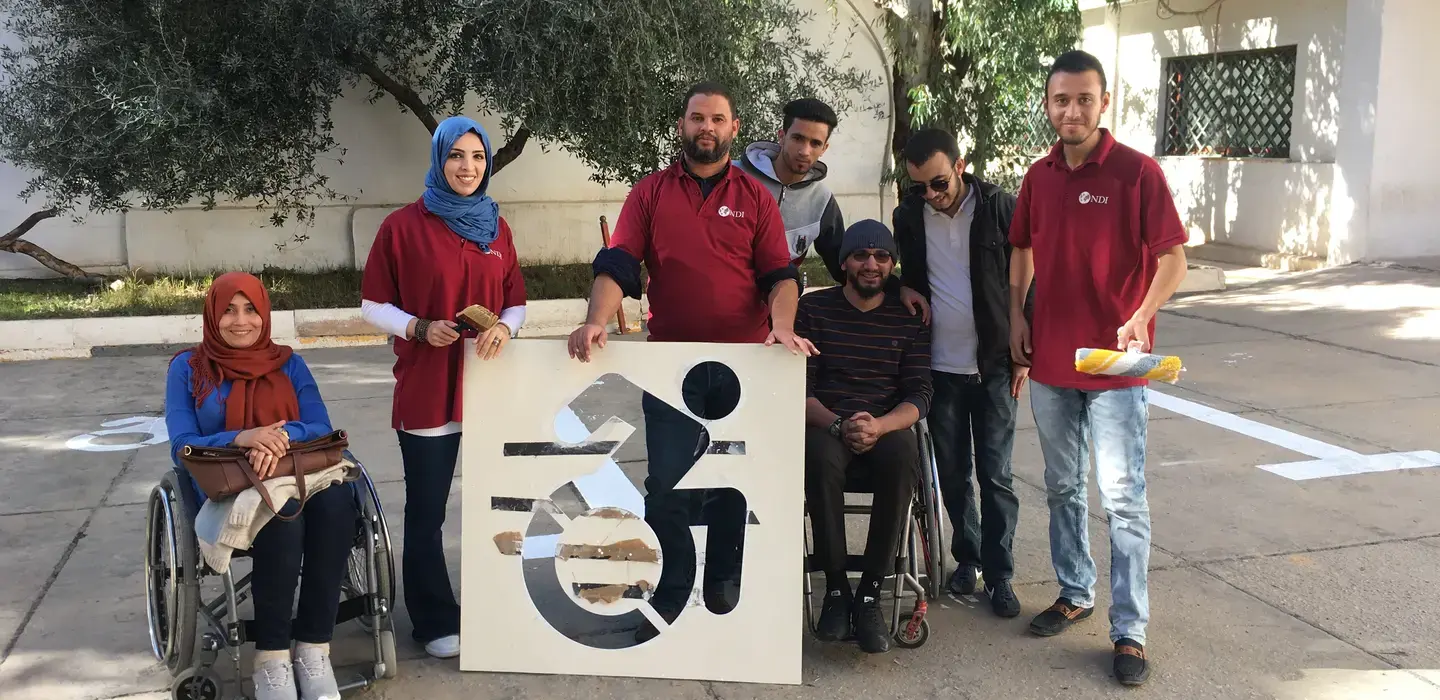More than 80 percent of the world’s people with disabilities live in developing and post-conflict countries, where their voices are frequently overlooked in political decision making. NDI programs work to support people with disabilities to engage politically and become full members of society with the rights, responsibilities and respect afforded all citizens in a democracy.
NDI helps people with disabilities participate in activities that get them involved in mainstream politics: for example, during the electoral process, people with disabilities can play the same roles as other citizens, including voting, running for office, advocating for policies, serving as poll workers or election monitors, and campaigning for a candidate. NDI programs also help them organize to take collective action around issues related to their disability, such as ensuring access to polling places or obtaining sign language translation in schools.
In 2006, the United Nations General Assembly adopted the Convention on the Rights of Persons with Disabilities (CRPD), which grants citizens with disabilities equal treatment under the law, including the ability to fully participate in political life. Disabled peoples’ organizations (DPOs) can use the CRPD to hold governments accountable on issues important to them, advocate for governments to commit to its provisions, and start conversations with decision makers about specific barriers to participation they face in their countries.
